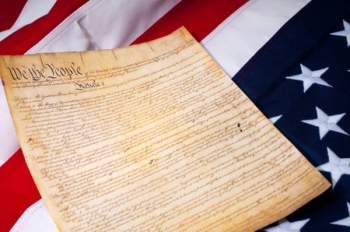
Understanding the 19th Amendment

Popular In Constitution
Purpose Of Lifetime Appointment And Pros And Cons Enumerated Powers Bicameral Legislature Background Article 3 Of The Constitution We The People 1st Amendment Who Wrote The Constitution Judicial Review Equal Protection Clause 5th Amendment 10th Amendment Three Fifths Compromise
The Nineteenth Amendment is another Amendment to the United States Constitution that was implemented in order to provide for a guarantee of civil rights to all citizens of the United States. In the vein of the Fifteenth Amendment, the Nineteenth Amendment would call for the prohibition of the state and Federal governments to deny a citizen the right to vote due the citizen's sex. It would take fifty years for women to obtain that right which was granted to free men in 1870 by virtue of the Fifteenth Amendment. The 19th Amendment was ratified on August 18th, 1920.
The Nineteenth Amendment states, "The right of citizens of the United States to vote shall not be denied or abridged by the United States or by any State on account of sex. Congress shall have power to enforce this Article by appropriate legislation." Though the Women's Rights Movement for Suffrage was already underway in previous years, it would not be until the adoption of the 19th Amendment in which they would ultimately reach success.
Women suffrage can be traced back to 1848 to the "Declaration of Sentiments" delivered in Seneca Falls, NY, which would be the first Woman's Rights Convention held in the United States. Women suffragists sought their inclusion in recognition of voting rights provided by the Fifteenth Amendment, but evidently did not make a strong enough case for universal suffrage. It would be in 1878, where the Constitutional Amendment, including what is now Section I of the Nineteenth Amendment, would be proposed.
Congress would hear the inclusion of this Amendment in every session for the next 41 years until it was finally approved. However, it is not to say that certain states did not grant women the right vote. The inclusion of Wyoming as a state in 1890 in turn made the new State of Wyoming the first state allowing women the vote. Other states, such as Colorado, Utah, and Idaho would also follow suit in years to come.
On the national level, support for women suffrage would arrive at its most successful step to date on January 9th, 1918, when President Woodrow Wilson announced his support for what would eventually become the 19th Amendment. The bill was voted on the following day, in which the House of Representatives managed to pass the Amendment, but the Senate would eventually vote on it in October of the same year and fail to pass it by three votes. It would finally get voted on once again in 1920, when Harry Burns would provide the necessary vote for the State of Tennessee to become the 36th State necessary to pass the Nineteenth Amendment into law.
It was quite the controversial move on Burns' part, considering that it was primarily the southern states of the U.S. that were most adamantly opposed to the 19th Amendment. However, the Nineteenth Amendment and its ratification would prove to be one of the most important changes in the history of the United States, further expanding the protection of civil rights for all citizens.



















